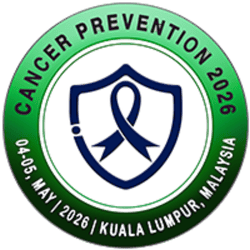Track: Environmental & Occupational Factors

Environmental and occupational exposures significantly influence cancer risk, contributing to preventable cases worldwide. This session highlights the role of carcinogens, workplace hazards, pollution, and lifestyle-related environmental factors in cancer development. By focusing on preventive oncology, cancer epidemiology, and public health interventions, it aims to raise awareness about identifying and mitigating harmful exposures that increase cancer risk. Discussions will address global cancer initiatives, policy-making, and innovative healthcare research approaches designed to implement effective cancer prevention strategies, enhance early detection, and reduce the burden of environmentally induced cancers in diverse populations.
Air Pollution and Its Impact on Cancer Risk
Air pollution is a major environmental carcinogen linked to lung, bladder, and other cancers. This sub-topic explores preventive oncology strategies, public health interventions, and policy-driven efforts aimed at reducing air pollutant exposure to lower cancer incidence worldwide.
Occupational Carcinogens and Workplace Safety Regulations
Occupational exposures to asbestos, benzene, silica, and other carcinogens elevate cancer risk among workers. This sub-topic highlights global cancer initiatives, regulatory standards, and workplace safety policies designed to minimize occupational hazards and improve cancer prevention strategies.
Water Contamination and Carcinogenic Substances in Drinking Water
Contaminated drinking water is a serious contributor to cancer risk in vulnerable populations. This sub-topic examines evidence-based healthcare research on waterborne carcinogens, their effects on cancer epidemiology, and public health interventions to ensure safe water access globally.
Radiation Exposure: Natural, Medical, and Occupational Sources
Radiation from natural sources, medical imaging, and occupational environments can increase cancer risk over time. This sub-topic discusses strategies to reduce unnecessary exposure, regulatory frameworks for radiation safety, and cancer prevention policies to protect at-risk populations.
Pesticides, Herbicides, and Agricultural Chemical Exposures
Long-term exposure to agricultural chemicals is a growing environmental concern. This sub-topic highlights healthcare research, cancer epidemiology studies, and preventive oncology measures that identify links between pesticide use and cancer while promoting sustainable farming practices to reduce risks.
Industrial Pollutants and Urbanization-Driven Cancer Risks
Urban environments often expose populations to industrial pollutants, smoke, and toxic chemicals. This sub-topic explores innovative cancer prevention strategies, policy-based interventions, and global cancer initiatives aimed at mitigating urbanization-related environmental cancer hazards.
Scientific Highlights
- Public Health & Cancer Awareness
- Cancer Prevention
- Screening & Early Detection
- Vaccination & Immunoprevention
- Environmental & Occupational Factors
- Complementary & Emerging Approaches
- Genetic & Personalized Prevention
- Cancer Biology and Genetics
- Cancer Immunology
- Molecular Oncology
- Hematology in Cancer
- Cancer Diagnosis and Therapeutic Approaches
- Oncology Research and Innovations
- Advanced Methods in Cancer Research
- Cancer Epidemiology and Prevention
- Future Trends in Prevention & Research
- Pediatric Oncology


